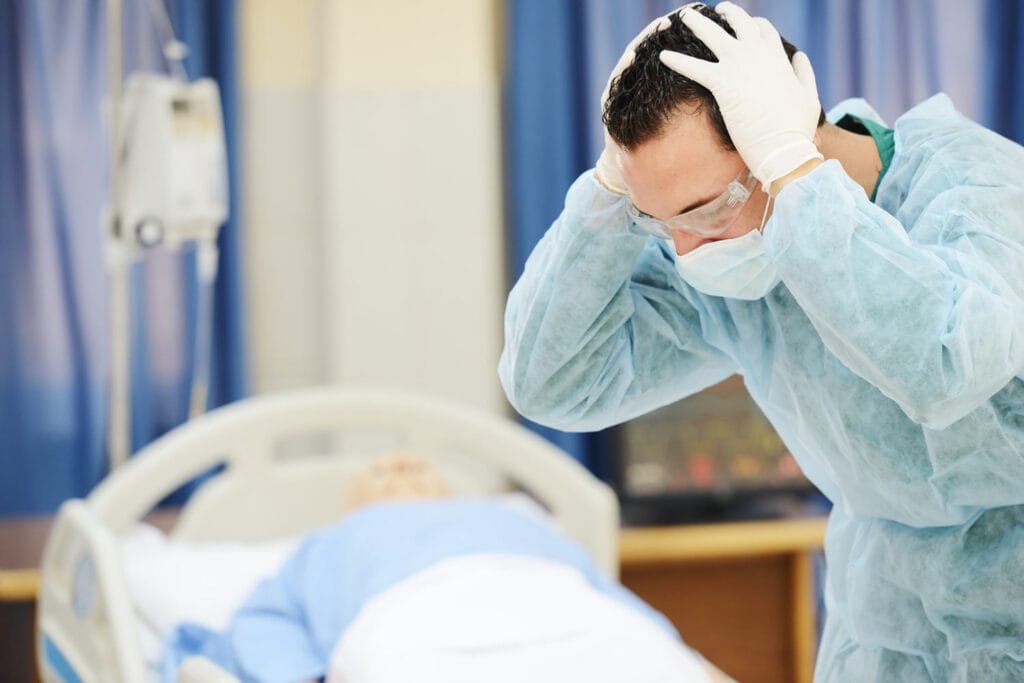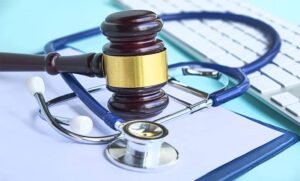How to Prove Medical Negligence: Key Evidence You Need
Medical negligence can change your life in many ways, including causing serious injuries, emotional distress, and financial hardship. If you have been harmed by medical malpractice, you need to prove negligence to receive fair compensation. These cases can be complicated and require solid, organized evidence to win in court.
At Oran Partners, we focus only on medical malpractice cases and have helped both local and international clients with complex claims. This guide will explain what medical negligence means, what you need to prove, the main types of evidence to gather, and the challenges you might encounter.
What Is Medical Negligence?
Medical negligence happens when a healthcare provider, such as a doctor, nurse, hospital, or other medical professional, does not meet the accepted standard of care and this results in injury or harm to the patient.
Under Turkish law, four legal elements must be proven for a malpractice claim to succeed:
- Duty of Care: The healthcare provider had a legal obligation to treat the patient according to professional standards.
- Breach of Duty: The provider failed to meet that standard of care, such as making a surgical error or giving the wrong medication.
- Causation: The breach directly caused harm to the patient.
- Damages: The patient suffered measurable harm, such as physical injury, emotional distress, or financial loss.
Each of these elements must be supported by clear and convincing evidence.
Key Evidence Needed to Prove Medical Negligence
1. Medical Records
Medical records are the foundation of any malpractice case. They provide a detailed account of your medical history, treatment, and outcomes, making them essential for proving what happened.
What they can show:
- Your diagnosis and treatment plan
- Medications prescribed and administered
- Surgical and anesthesia reports
- Doctor’s notes and nursing observations
- Test results (bloodwork, X-rays, MRIs, CT scans)
- Discharge summaries and follow-up instructions
How to obtain them:
- Request copies from all hospitals, clinics, and healthcare providers involved in your care.
- Keep your own records of prescriptions, test results, and appointment summaries.
- Ensure they include both pre-treatment and post-treatment documentation.
2. Expert Medical Testimony
In most malpractice cases, expert testimony is the single most important piece of evidence. An independent medical expert can assess whether your healthcare provider’s actions fell below the accepted standard of care.
Why it matters:
- Establishes the standard of care that should have been provided.
- Identifies specific errors or omissions in your diagnosis, treatment, or follow-up care.
- Provides an unbiased, professional opinion to support your claim.
How to secure it:
- Your lawyer will identify and hire a qualified medical expert in the relevant specialty.
- The expert will review your medical records and prepare a written report.
- If necessary, the expert will testify in court to explain how the malpractice occurred and how it caused your injuries.
3. Photographic and Video Evidence
Visual evidence can make a powerful impression on judges and juries by showing the real-world impact of malpractice.
Examples include:
- Photos of surgical scars, wounds, or disfigurement
- Videos showing mobility limitations, speech difficulties, or other impairments
- Before-and-after photos for cosmetic or reconstructive surgery cases
Best practices:
- Use clear, high-resolution images.
- Date each photo or video to establish a timeline.
- Continue documenting changes over time, especially if your condition worsens.
4. Witness Statements
Witnesses can help corroborate your account and add credibility to your case.
Potential witnesses:
- Family members or friends present during treatment or recovery
- Nurses or medical staff who observed negligent actions
- Other patients who experienced similar treatment from the same provider
How to collect statements:
- Request written or recorded statements that include specific dates, times, and observations.
- Have each statement signed and dated to increase its credibility.
5. Financial and Employment Records
Malpractice cases often involve economic damages, so proving your financial losses is essential.
What to include:
- Medical bills for corrective procedures, medications, and rehabilitation
- Proof of lost wages or reduced earning capacity
- Estimates of future medical costs, if ongoing treatment is required
- Transportation and accommodation expenses for medical visits
How to present them:
- Keep all invoices, receipts, and travel expense records.
- Provide pay stubs, employment contracts, or tax returns to establish lost income.
- Include expert assessments of future care costs if your injury is long-term.
Challenges in Proving Medical Negligence
Even with strong evidence, proving medical negligence can be challenging for several reasons:
- Medical Complexity: Understanding the details of diagnosis, treatment, and errors often requires specialist knowledge.
- Well-Resourced Defense Teams: Hospitals and insurers often have experienced legal teams to dispute claims.
- Incomplete or Missing Evidence: Records may be incomplete, altered, or withheld.
- Pre-Existing Conditions: These can complicate the link between the negligence and your current injuries.
A skilled malpractice lawyer can anticipate and address these challenges through expert testimony, legal strategy, and aggressive evidence collection.
Why Choose Oran Partners for Your Medical Malpractice Case
At Oran Partners, we bring specialized expertise and a proven track record to every case we handle.
Why clients choose us:
- Exclusive Focus: We handle only medical malpractice cases, giving us unmatched experience in this area.
- International Reach: We represent both Turkish citizens and foreign nationals, helping international clients navigate Turkey’s legal system.
- Access to Experts: We collaborate with leading medical professionals for thorough case evaluations and expert testimony.
- Transparent Communication: We keep clients fully informed, with clear explanations at every stage.
Take Action Today
If you believe you have been the victim of medical negligence, do not delay. Acting quickly increases your chances of:
- Preserving vital evidence
- Meeting all legal deadlines
- Securing the testimony of witnesses and experts
Contact Oran Partners today for a free, confidential case evaluation. Our experienced legal team will review your situation, explain your options, and develop a strategy to pursue the compensation you deserve.













